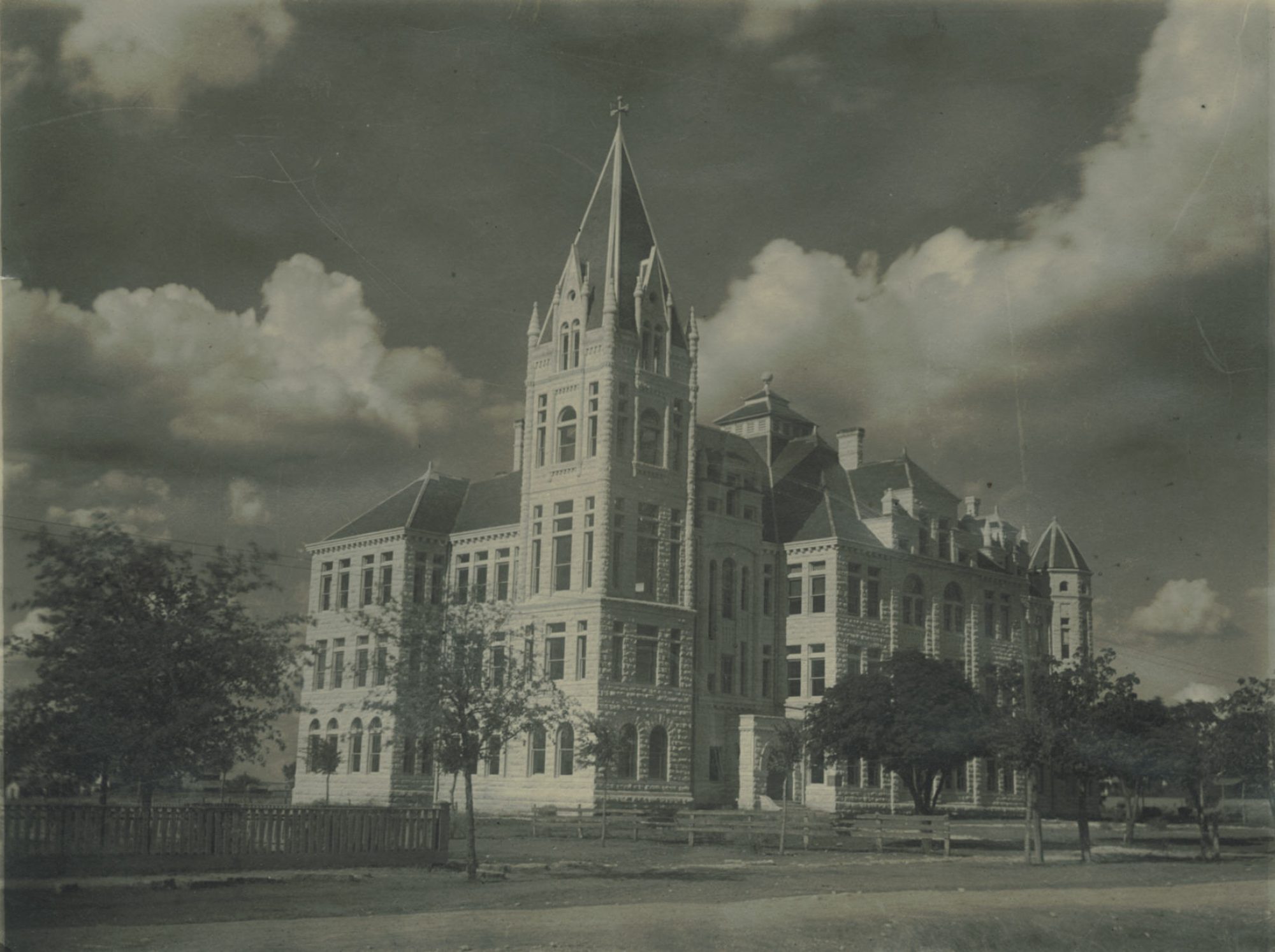Emily Higgs, Special Collections Intern

When I first started my internship at Southwestern University Special Collections, Director Jason Dean suggested that we read the RBMS Competencies for Special Collections Professionals as part of our weekly special collections reading group. While this was a great exercise in examining my own skill sets and developing learning goals for the duration of my internship at Southwestern, it left me with concerns about my career-readiness with only two semesters left in my MSIS program. These lists of knowledge areas in particular struck me as overwhelming:
. . .“a working knowledge of the basic history, theory, and best practices relating to materials found in special collections research libraries, including but not limited to printed books, manuscripts, archival material, and ephemera; photographs, prints, maps and other graphic works; audio-visual material in all formats; born-digital and digitized media; art objects and three-dimensional objects” . . . . . .“knowledge of the production and dissemination of information resources, including the history of the book and the book arts, book construction, editions and variants, binding history, illustration techniques, digital printing and publishing techniques, typefaces, paper, parchment, paleography, and scribal practices, or other topics as appropriate for their collections” . . .
These excerpts alone are daunting for a student, but the sublists for special competencies are more so: outreach and advocacy, collection development, description and access, information technologies and data management, instruction, management, conservation, advocacy and outreach, and reference – these lists are to be taken in addition to ALA’s Core Competences of Librarianship specifying “basic knowledge to be possessed by all persons graduating from an ALA-accredited master’s program in library and information studies.” Even having worked and interned in several libraries and archives before pursuing my MSIS at the University of Texas, I felt a gap between these lists of essential competencies and what I had learned so far in my degree program, with only one year left before applying to full-time jobs in special collections.
Part of that gap is perhaps indicative of the general trajectory of the MLS/MLIS degree. Part of that gap, however, is due to my choice to pursue my degree at a school of “Information” rather than a library school. Former University of Texas iSchool Dean Andrew Dillon claims that the Information School (“iSchool”) model is “representative of efforts to extend concerns with information and human users beyond the agency model of traditional LIS approaches.” With this framing, Dillon notes, “libraries can provide one context of study, but they are not privileged as more important than many other possible contexts.” This is a distinction I very much see reflected in the course offerings for students. For example, the iSchool offers a class on “theories and applications of metadata,” but does not offer a course devoted to cataloguing. The School of Information also very much prioritizes research production, and the majority of faculty do not have backgrounds as practicing librarians or archivists.
The expansion of these programs to suit many different types of contexts, including the tech industry and corporations, means that skills considered “niche” or “institution-specific” – like cataloguing, for example – are supplanted by generalized lessons on the organization of data and information that can be applied to libraries and Silicon Valley alike. While all library schools must contend with creating a proper balance between theory and practice, the iSchool markedly favors theory – with an even further level of generalization, in order to be able to be relevant to many different contexts and disciplines. This emphasis on information theory does benefit librarians and library education in terms of grounding philosophical debates in the field, but library students approaching graduation and an oversaturated job market will (understandably) feel anxiety about lacking the specific skills needed in library jobs – especially when job postings increasingly list specific metadata standards, software competencies, and “hard skills.” In the theory-heavy iSchool model of education, these context- or agency-specific skill sets are instead outsourced to internships.
My internship at Southwestern University has been invaluable in teaching me some of the skills previously discussed as well as overcoming imposter syndrome to discover and embrace the knowledge I already possess. Almost all graduate student internships in special collections and archives involve basic digitization and processing work, but I’ve had truly meaningful projects in this context that have directly contributed to my competency and sense of identity in this profession. Through my exhibit on the origins of Southwestern, I gained familiarity with the Southwestern University collections and history, and explored the theory and best practices of special collections exhibits. Engaging in reference work and social media has helped developed my bibliographic vocabulary and familiarity with rare book and archival reference sources. Working with faculty on pedagogy with primary sources has expanded my instructional capabilities and allowed me to better leverage my technological training in this context.
I’ve also had experiences in special collections that most of my peers in similar internships frequently miss out on. My supervisor, someone trained and experienced in rare book cataloguing, has made an effort to include me when new materials need to be cataloged. Although it would be easier for him to simply do this by himself, he knows that many job postings ask for cataloguing experience, and he is willing to take the time to invest in my skills to see me succeed after my internship. Similarly, allowing me to speak to classes, donors, and other stakeholders makes me feel more competent in public services and outreach, and more likely to actually apply for jobs that ask for these skills. Deliberately including me in decisions and processes in which I lack expertise and experience, in addition to being an investment in my future career, increases my drive give back to the department with the skill sets that I do have.
Ultimately, a practicum or internship augments the value of lessons in the classroom setting as well. Because of my internship, I bring examples from my internship to class discussions. I learn more from professors by being able to ask myself, “how am I going to specifically apply this to the work I’m doing right now?” My internship in special collections guides my choice of courses to take, paper topics, and projects, allowing me to better tailor my formal education in order to 1) enhance the specific abilities I need to do good work at Southwestern in the short term, and 2) cultivate proper competencies for a special collections professional in the long term.
The special collections internship provides both a guide for my formal education and a way forward after I receive my degree; it has allowed me to make the most of my MSIS degree and develop the skills that the degree does not address. If the profession is concerned with the general trajectory of library education – or the future of special collections librarianship more broadly – it will invest in paid, skill-building internships for students.
Dillon, Andrew. “What It Means to Be an ISchool.” Journal of Education for Library and Information Science, vol. 53, no. 4, 2012, pp. 267–273. JSTOR, www.jstor.org/stable/43686920.
